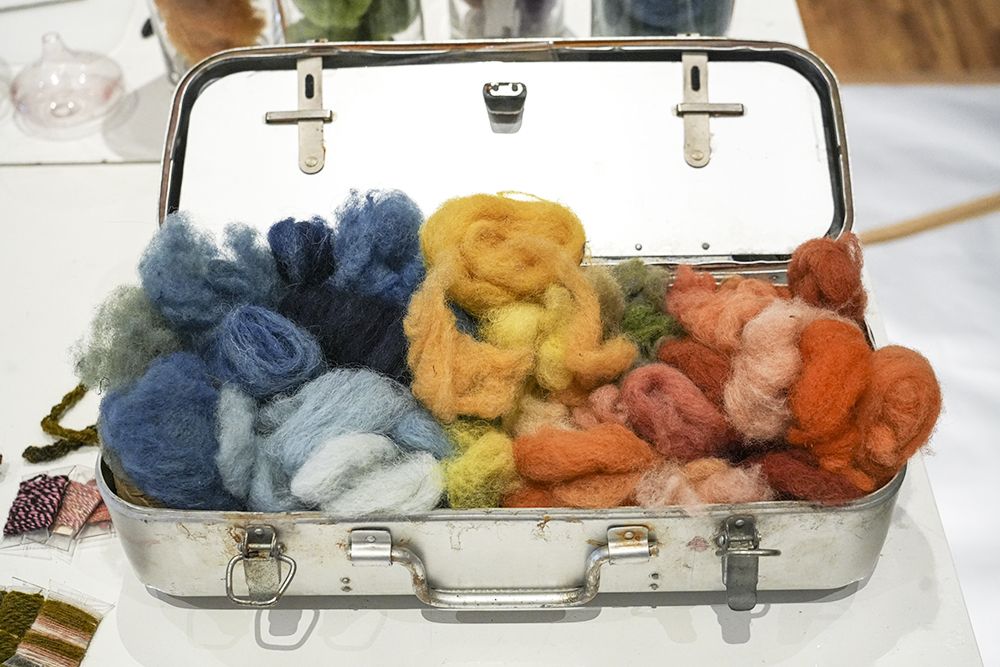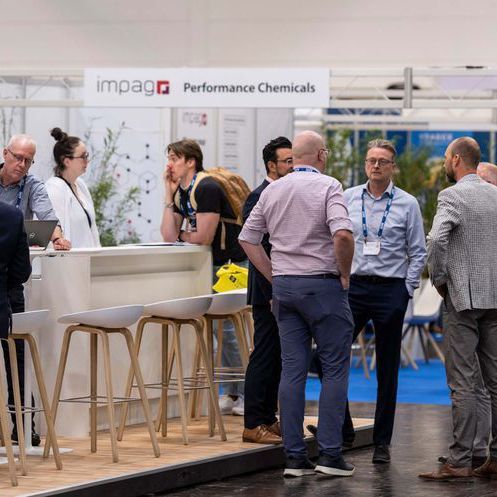
EDITORIAL
Dear readers,
In this newsletter, you will have the opportunity to replay our VETRINE event on overconsumption, understand the power of VR and Smart platforms of GRENOBLE INP who supports ViDi courses, and become familiar with the launch of our TCBL Wool group. Also a selection of inspiring thoughts and events.
Happy reading!
PROJECTS

FASHION REVOLUTION WEEK 2025E
VETRINE
For Fashion Revolution Week, the VETRINE Project organised an online event with three activist groups and two local associations. Highly engaging presentations were made on overconsumption / overproduction but also on degrowth, revolution, regeneration or real transparency (vs. green washing). All five panelists showed their impressive impacts on policies, consumer experiences or long-lasting changes. The roundtable debate raised issues of how to build and maintain engagement in a community, particularly when targeting younger generations, and how to design innovative strategies to produce a self-nurtured ecosystem, particularly with transparency in true costs and governance. If you missed it, watch the video on YouTube here. (© VETRINE)

AI TRAINING
ViDi cours
The recent ViDi consortium meeting in Grenoble was a unique opportunity to visit the fabulous Vision-R and SMART platforms of Grenoble INP and to understand the wide scope of human and digital solutions that can be designed to solve factory challenges and issues. Such expertise combined with that of University of Groningen and the use cases from Katty Fashion and Groupe Pernoud is being leveraged to develop the full ViDi program on Data Science for manufacturing. Discover the courses here. (© ViDi)

WOOL
TCBL Wool group
TCBL members interested in developing the potential of wool have formed a group and recently had an online working group. TCBL members pitched their innovation paths and joined forces to work together on the challenge of re-building wool value chains in Europe. For example, in France, only 4% of the 10,000 tonnes of raw wool are transformed locally; the rest is shipped away and returns as cheap sweaters. Among the challenges: mapping local sheep and wool qualities, the washing bottleneck, how to process and dye sustainably, developing small series knitting machines and using every recycling path available. Join TCBL to get members-only access to the Slack groups where wool is amongst one of the thematic areas being discussed. (© Shemakes, Marco Badiani)
Are you a member of the TCBL Association yet? Members share knowledge and experience, network and develop new projects through services available to all paid, accredited members.
INSPIRATIONS (or not)
Certification: the status of BCorp is being improved
To join the BCorp community, companies should complete a self-assessment questionnaire, be audited by peers, and include the importance of social, societal and environmental impact in their statutes. A few companies now claim that the standards are too lax and allow big multinationals to be granted the label which is used in green washing. BCorp is now revising their criteria and processes to maintain their international recognition. Read
Even if we often associate Shein and Temu as common enemies, these two companies have different business models
Shein was inspired by Zara, where small series are tested and scaled if successful enough, thanks to the help of GenZ social influencers; Temu is a platform for large series producers who want to sell their overstock and targets all clients. This article (in French) explains the differences. Read
The London Textiles Action Plan, which launched March 31, takes a local approach to reducing waste and making the fashion industry in London more circular with a three-pronged plan that promotes quality production, repair, and reuse as well as recycling. Part of their process includes mapping local assets that are working in sustainable and circular textile and fashion. Something to try to reproduce elsewhere? Info on the official website
Beer sludge turned into gold for the Textile industry
37 Million tons of spent grain are produced each year. While 70% of it is turned into cattle food and 10% in biogas, the remaining waste is now explored for potential qualities like fibers, dyes for “vegan leather”, proteins for the food industry etc. Read
AGENDA

Circular Republic Festival
22-23 May 2025, Munich
The 2nd edition to accelerate circular transition. Find out more

Global Fashion Summit
3-5 June, Copenhagen
A leading fair that needs no presentation by now! Find out more

Textile Recycling Expo
4-5 June, Brussels
The first fair dedicated exclusively to the transformation of textile waste. Find out more

France Quantum
10 June, Paris, Station F
The 4th edition of the quantum ecosystem to explore, connect and democratize quantum-based solutions. Find out more
A big thank you to our contributors of the month, Paola Francavilla, Vinicius Affonso de Carvalho, Jesse Marsh, and to our editors, Alexandra, Frédérique, Jean-Renaud.
Do you have questions or comments about the topics in this newsletter, or ideas about the textile industry? Do not hesitate to contact us
TCBL@audasud.fr
Online programing and copyright © 2025 Audasud
Add us to your address book















